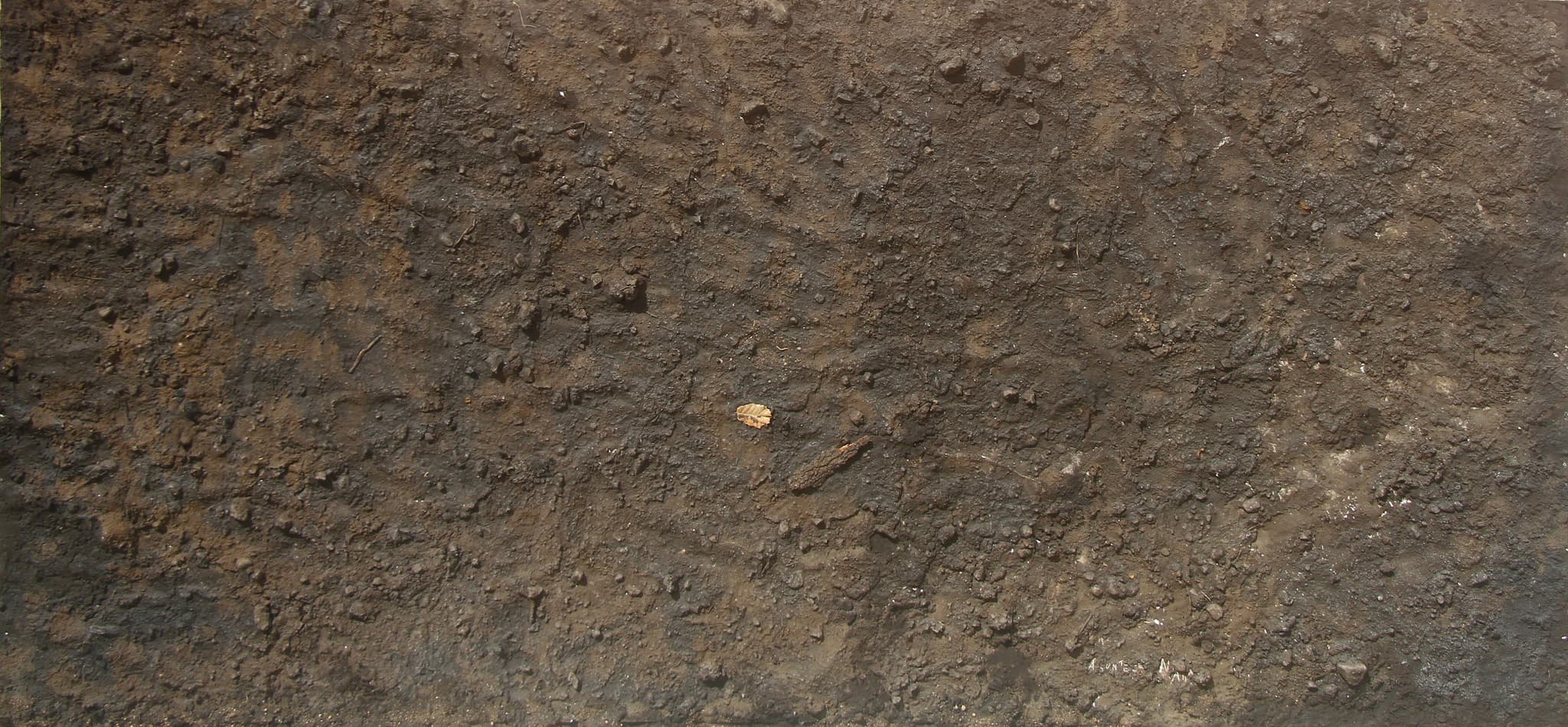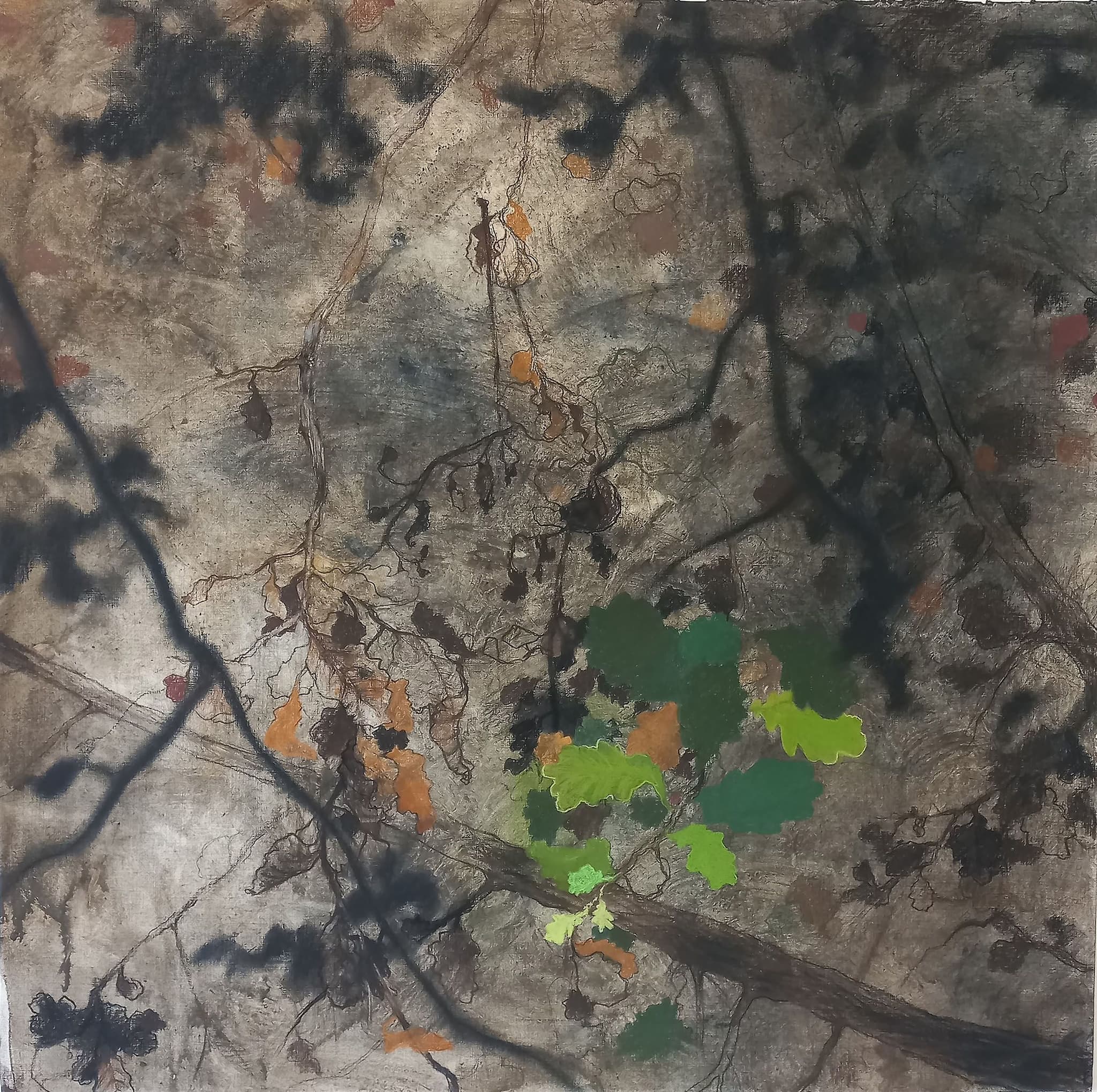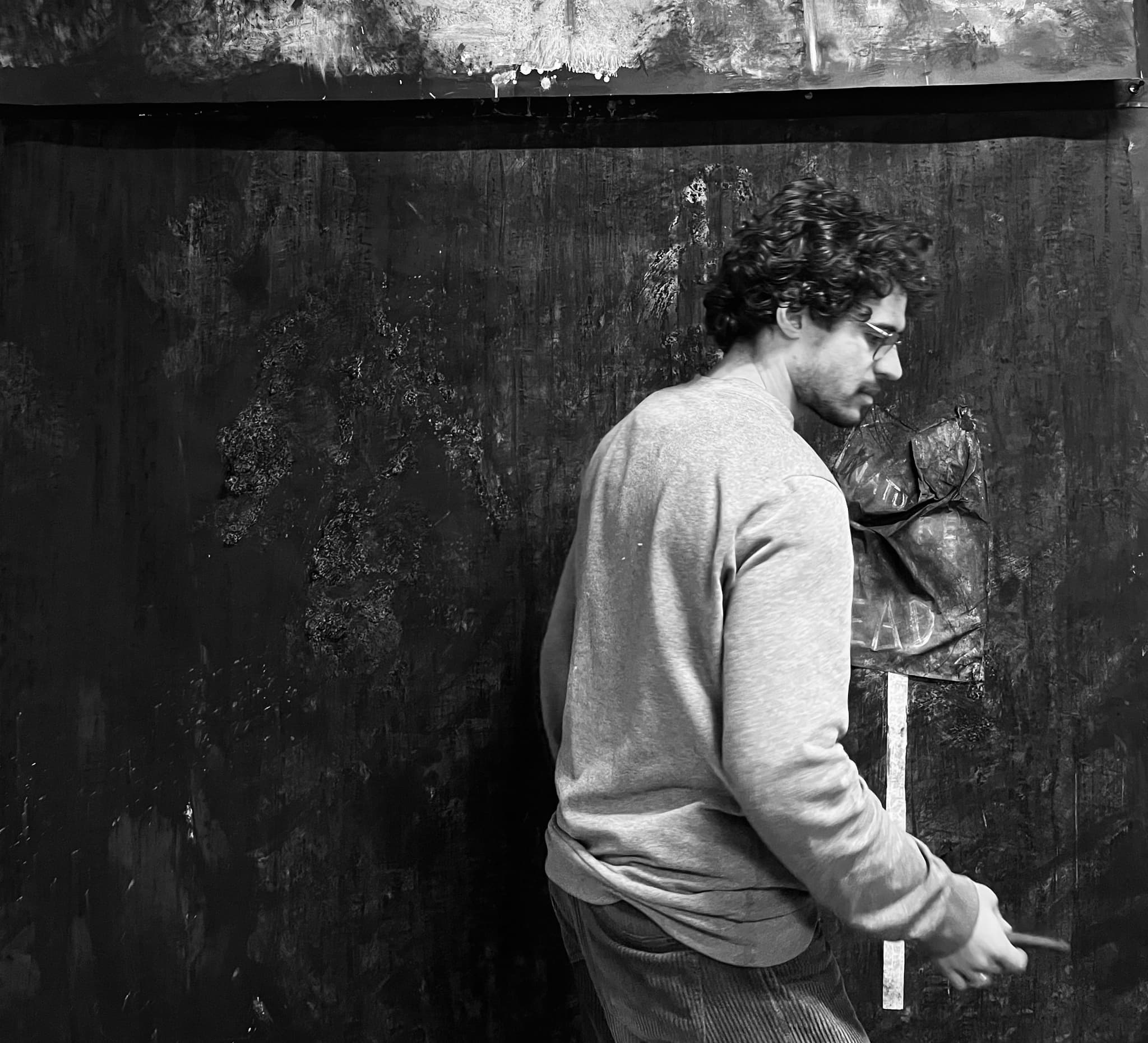Xochi Magazine.
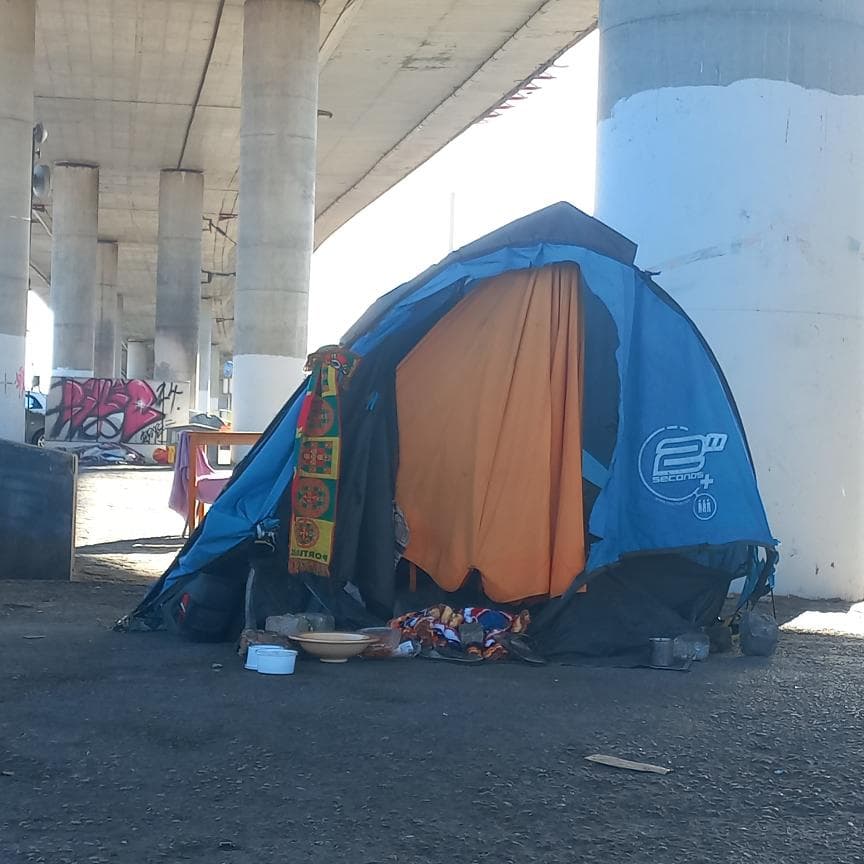
Don’t Look: João Marques Confronts Lisbon’s Blind Spots Through Art
Author
Luc Levez
Featured Artist
João Marques
Published
Aug 2025
Share
“When I moved to Lisbon, I was shocked,” João recalls. “I come from a small town where there are no homeless people. At first, I did nothing. But recently, I found myself seeing them — really seeing them — and an idea started to take shape.”
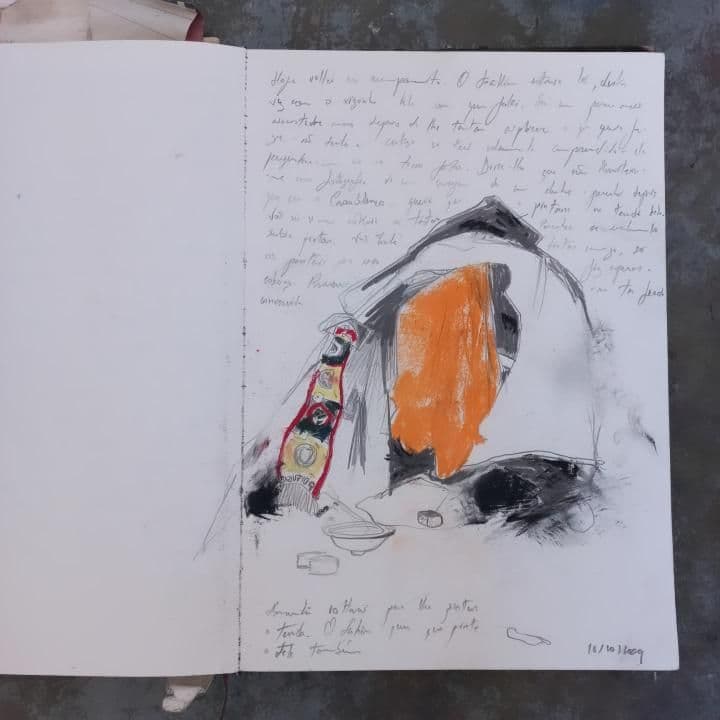
That idea began simply: capturing the tents of the homeless along the river near Santa Apolónia station, just meters from the docking point of cruise ships teeming with tourists. The tents, torn and patched, vividly decorated with colors and football symbols, became more than shelters — they told stories of resilience, displacement, and hope.
“I was just sitting and drawing when a man from Morocco asked, ‘Can you paint my tent?’ That completely shifted the project. Suddenly, it wasn’t just paintings of tents — it was the tents themselves. They became living artworks.”
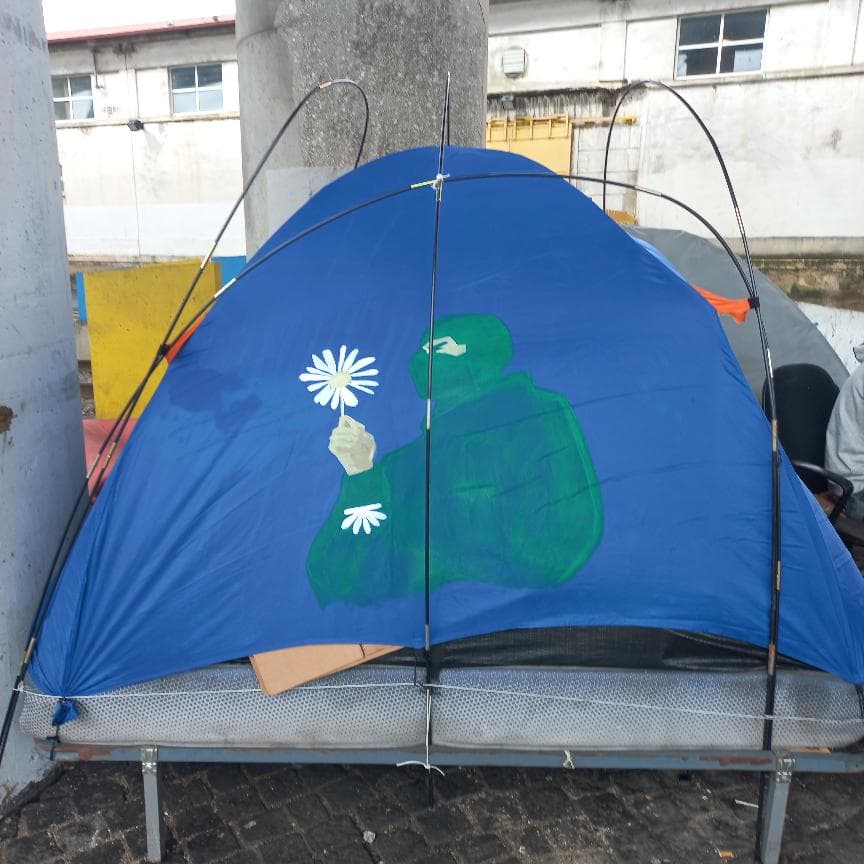
But Don’t Look is not only about tents. It is a meditation on invisibility. João began collecting discarded tourist pamphlets, glossy promises of Lisbon’s wonders, which lay alongside the tents. The irony was striking: these brochures show a city full of life and beauty — yet they never show this other Lisbon, a city that exists just a few steps away, ignored by nearly everyone.
“People know these tents are there, but they look away,” he says. “Some feel helpless, some afraid, some guilty. That act of looking — or not looking — became central to the project.”
The project has already evolved beyond paintings and collages. João envisions an immersive installation, using the tents themselves, not sanitized or staged, in a gallery setting. The goal is not voyeurism or charity. Instead, it is confrontation: forcing viewers to acknowledge a reality they often choose to ignore.
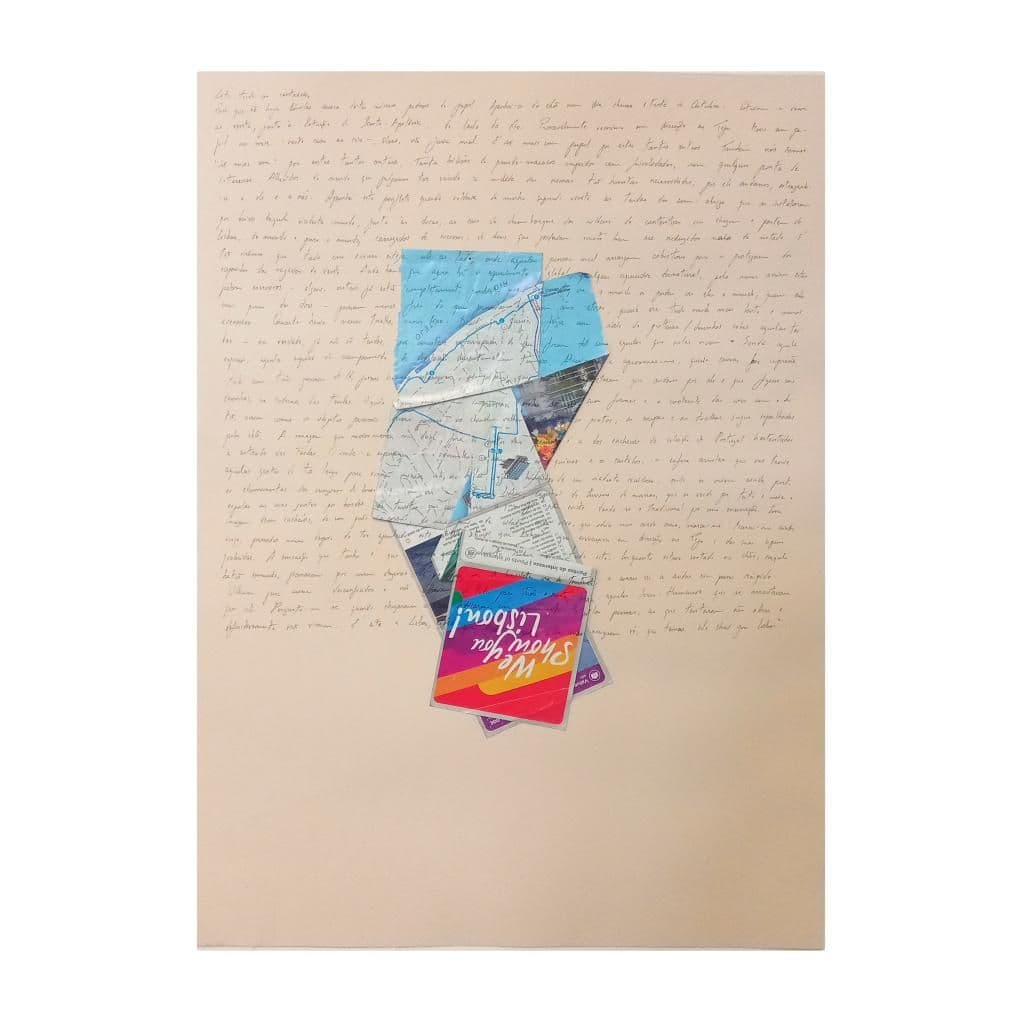
“I want it to be uncomfortable,” João explains. “It should smell, it should feel real. It’s about placing something in front of people that they don’t want to talk about.”
His approach is deliberate, ethical, and collaborative. Conversations with the tent residents guide the work, making each piece not just a representation, but a partnership. He’s also consulting a psychologist to ensure the project benefits the people involved in ways that go beyond the aesthetic.
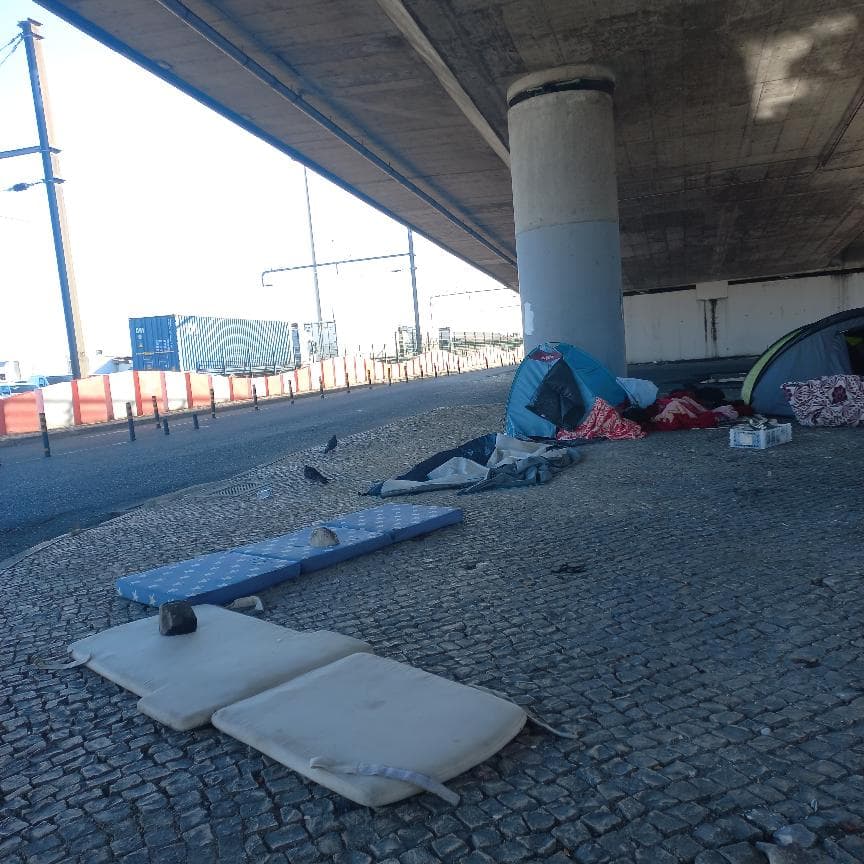
“There are already volunteers who bring food,” João notes. “But that doesn’t solve the bigger problem. These people don’t just need meals — they need housing, dignity, opportunity. Art can’t fix everything, but it can give voice and visibility.”
The project also touches on the broader challenges faced by migrants and displaced professionals, people whose qualifications and histories are rendered invisible in their new environment. The systemic barriers — no home, no bank account, no address — trap them in a cycle that seems impossible to escape. João hopes his work sparks awareness, empathy, and perhaps action.
Don’t Look is not a charity project. It is not a social experiment. It is a confrontation with society’s blind spots, and an invitation to consider what it means to truly see another human being. Through painted tents, collages, and the very fabric of Lisbon’s streets, João asks us: if we look, will we act?
“The project will be complete,” he says, “when these people don’t need tents anymore. Until then, the tents, the art, the city — they all speak. They demand attention.”
In a city of sunlit plazas and postcard-perfect views, João’s Don’t Look reminds us that the most urgent stories are often those we choose not to see. And perhaps, through art, that choice can be challenged.
Never miss a Feature.
Exhibitions • Interviews • News
Est. 2024
Available Works by
João Marques

Auto-relato ou um panfleto turístico de Lisboa I
500 €
João Marques

Cartografias de um incêndio IV
350 €
João Marques

Cartografias de um incêndio III
350 €
João Marques

Cartografias de um incêndio II
350 €
João Marques

Natureza-morta III
3.000 €
João Marques

Quinto
700 €
João Marques
